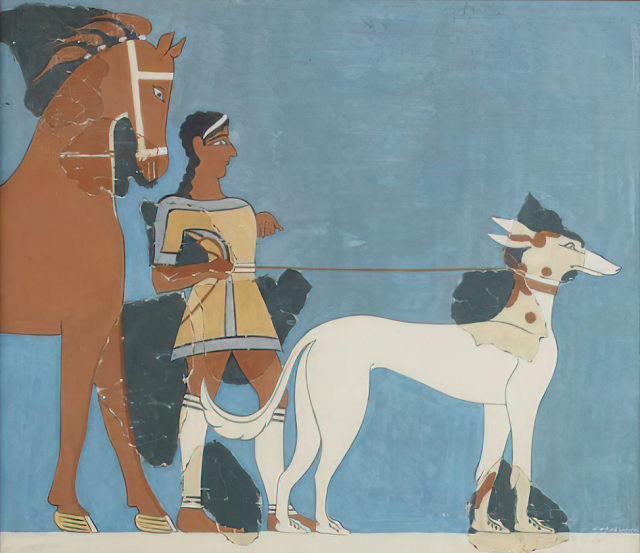Gaius Cornelius Gallus (c. 30 – 26 BCE) was a Roman poet, orator and politician who supported Octavian and was appointed prefect of Egypt after Octavian defeated Antony and Cleopatra VII. While in Egypt, he led a campaign to subdue a revolt in Thebes then, perhaps, went too far and erected a monument in Philae to glorify his accomplishments. Octavian recalled him and appointed a new prefect, Aelius Gallus, who was the one who led the disastrous campaign in Arabia Felix (modern day Yemen). Cassius Dio reports Cornelius Gallus committed suicide upon returning to Rome.
Gallus enjoyed a high reputation among his contemporaries as a man of intellect, and Ovid considered him the first of the elegiac poets of Rome. He wrote four books of elegies chiefly on his mistress, Lycoris, (a poetical name for Cytheris, a notorious actress), in which he took for his model Euphorion of Chalcis. He also translated some of this author's works into Latin. He is often thought of as a key figure in the establishment of the genre of Latin love-elegy, and an inspiration for Propertius, Tibullus, and Ovid. It was thought little of his works survived until a papyrus was found at Aqsr Ibrim in Egyptian Nubia in 1978.
Four lines which probably once stood at the beginning of a poem pay homage to Julius Caesar shortly before his assassination, on the eve of his projected campaign against the Parthians:
Fata mihi, Caesar, tum erunt mea dulcia, quom tu maxima Romanae pars eris historiae postque tuum reditum multorum templa deorum fixa legam spolieis deivitiora tueis.
'I will count myself blessed by fortune, Caesar, when you become the greatest part of Roman history; and when, after your return, I admire the temples of many gods adorned and enriched with your spoils.'
Scholars think this obsequious compliment need not be taken seriously, though. Later Augustan poets tended to distance themselves from the world of high politics and often drew a humorous contrast between the martial ambition of their ruler and their own ignoble love affairs. The next, missing, stanza may have subverted the sense, e.g. 'As it is, while you're off winning renown by conquering Parthia, I'm stuck here in Rome, with nothing to do but make love to Lycoris.'
 |
| Impression of a seal depicting a bust of Cornelius Gallus from Edfu, Egypt, 29 - 26 BCE, at the Royal Ontario Museum, Toronto, Canada courtesy of the museum. |
Image: Portrait head thought to be that of Cornelius Gallus, 30 BCE, at the Cleveland Museum of Art, courtesy of Wikimedia Commons contributor Sailko.


















































